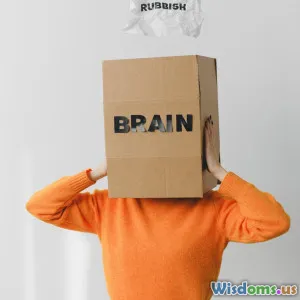
How Sleep Shapes Our Memories
8 min read Discover how sleep is intricately linked to memory formation and retention, rooted in brain science and dreams. (0 Reviews)
How Sleep Shapes Our Memories
Sleep is often viewed as a necessary downtime for our bodies and minds, but what if we told you it plays a pivotal role in shaping our memories? From enhancing learning to helping us organize and retrieve our thoughts, sleep is essential for effective memory function. In this article, we will delve into the fascinating relationship between sleep and memory, explore the mechanisms in the brain responsible for this connection, and examine how sleep architecture affects our ability to recall information.
The Importance of Sleep for Memory
Sleep is not merely a break from activity; it is a critical phase during which our brains engage in several crucial processes that underpin memory retention. According to research published in the Nature Reviews Neuroscience, sleep enhances memory consolidation, the process whereby new information is stabilized for long-term storage. It achieves this through a series of complex neural mechanisms that primarily unfold during specific stages of sleep.
Types of Memory Supported by Sleep
Understanding how sleep influences memory starts with recognizing the different types of memory we possess:
- Declarative Memory: This type of memory refers to facts and information that can be consciously recalled, like names, dates, or events. Sleep, particularly slow-wave sleep (SWS), is crucial for consolidating declarative memories.
- Procedural Memory: This memory type involves skills and tasks (e.g., riding a bike, playing an instrument). Both REM (Rapid Eye Movement) sleep and SWS are important for reinforcing procedural learning and skill acquisition.
- Emotional Memory: Sleep also plays a role in assimilating emotional experiences, helping us interpret and process emotional events during specific sleep phases.
The Sleep Stages and Memory Consolidation
The human sleep cycle consists of multiple stages, alternating between REM and non-REM sleep. Each stage contributes distinctly to memory processing. Here are the key phases:
Non-REM Sleep
- Stage 1 (NREM 1) - A light sleep stage where one drifts in and out, making it a transition phase. Very little memory processing occurs here.
- Stage 2 (NREM 2) - Characterized by sleep spindles and K-complexes, this stage helps with the processing of memories. Studies suggest that sleep spindles, which occur during NREM 2, correlate with the strength of memory consolidation.
- Stage 3 (NREM 3) - Often referred to as deep sleep, this phase is extraordinarily vital for memory. In this stage, the brain undergoes slow wave activity that helps solidify our knowledge and experiences from the day into long-term memory.
REM Sleep
REM sleep, crucial for brain function, is dominated by vivid dreaming. Research indicates that REM sleep is especially significant for emotional and procedural memory consolidation. During this stage, the brain displays heightened activity similar to wakefulness, suggesting an active processing of memories. For instance, studies have shown that individuals who obtained enough REM sleep performed better in problem-solving tasks that required creative thinking and memory recognition.
Real-World Insights: Sleep and Memory Enhancement
Many individuals seeking to enhance their cognitive abilities are often advised to optimize their sleep. Here are some relatable situations:
Student Life
College students frequently pull all-nighters before exams to cram their studies. However, research shows that students who prioritize sleep tend to perform better academically. A study by the Journal of Sleep Research revealed that students who maintained healthy sleep patterns showcased improved performance in memory recall and problem-solving skills compared to their sleep-deprived peers.
Dream Diaries
Dreams, which commonly occur during REM sleep, can also give insight into our memories. Keeping a dream diary as suggested by psychologists, has shown potential benefits in processing memories and emotional events in our waking life. By journaling dreams, individuals often experience improved awareness of their memory processes, contributing to enhanced recall and retention.
Addressing Sleep Disorders
It’s important to note that sleep disorders can significantly affect memory. Conditions such as insomnia or sleep apnea disrupt natural sleep patterns, hindering the brain’s ability to consolidate memories effectively. Strategies like cognitive behavioral therapy for insomnia (CBT-I) could contribute to better sleep hygiene and subsequently, improved memory function.
Cognitive Behavioral Therapy for Insomnia (CBT-I)
CBT-I involves identifying and changing thoughts and behaviors that could negatively impact sleep. Evidence shows that individuals undergoing CBT-I not only improve their sleep quality but also experience significant improvements in memory and cognition.
Conclusion
In conclusion, sleep is not just a passive state of rest but a highly active period that shapes, consolidates, and reorganizes our memories. Understanding the intricate role of sleep in memory processes allows us to appreciate the importance of prioritizing sleep for mental clarity and cognitive health. With ongoing research into sleep and its effects on memory, we gain deeper insights into how to harness its potential. By adopting healthy sleep habits, we can significantly enhance our ability to learn, remember, and process the world around us. So, the next time you think about sacrificing sleep for productivity, reconsider: Your memories and your mental performance depend on it!
As the well-known quote from sleep scientist Matthew Walker states, “Sleep is the single most effective thing we can do to reset our brain and body health each day.”
Rate the Post
User Reviews
Popular Posts




















